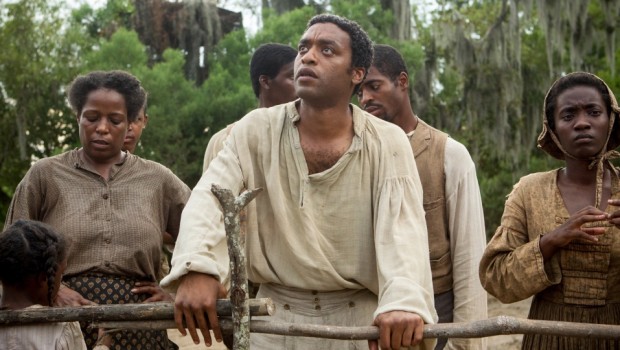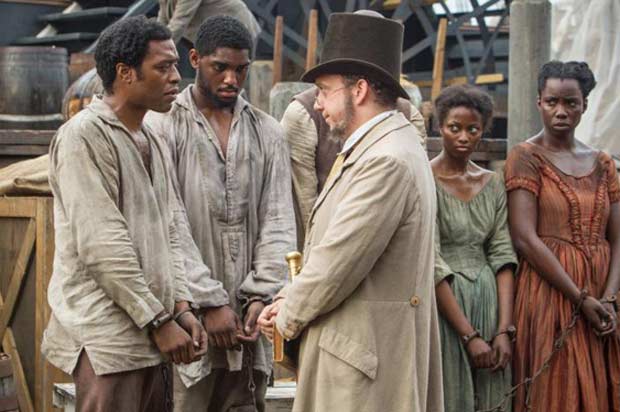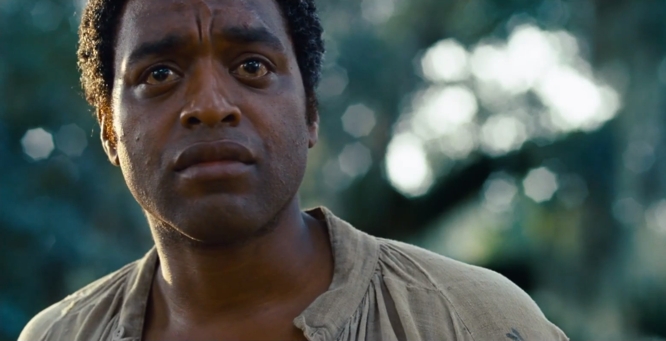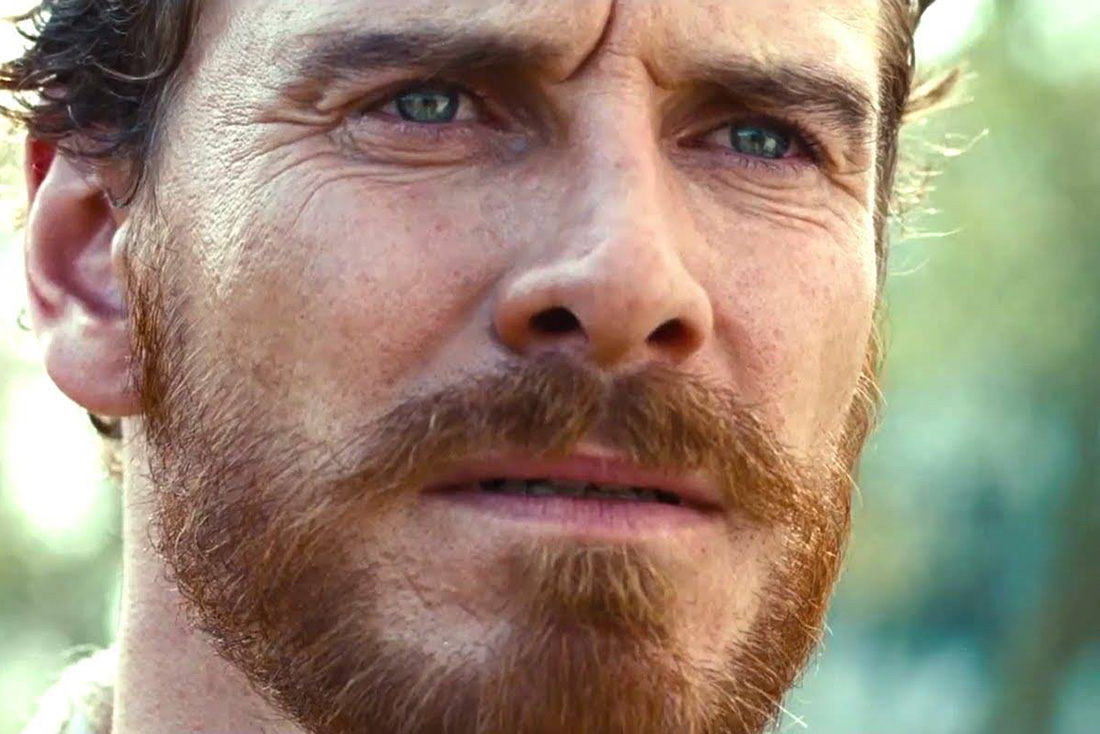12 Years a Slave – Film Review
Reviewed by Damien Straker on January 30th, 2014
Icon presents a film by Steve McQueen
Written by John Ridley (screenplay), based on “Twelve Years a Slave” by Solomon Northup
Starring: Chiwetel Ejiofor, Michael Fassbender, Benedict Cumberbatch, Paul Dano, Lupita Nyong’o, Sarah Paulson and Paul Giamatti
Running Time: 134 minutes
Rating: MA15+
Release Date: January 30th, 2014
12 Years a Slave is a pre-American Civil War film that makes us question how we were capable of treating humanity with such disdain and why little has changed. Hollywood tapped into a number of films exploring African American suffering in 2013 (Lincoln, Fruitvale Station, The Butler), but this particular film’s examination of violence and the submissive character reactions has a timeless quality. It could mirror how after September 11 political prisoners were detained without legal rights and physically and mentally abused under the suspicion of not sharing the same political and religious values: such is the film’s contemporary relevance and power, which is pertinent and unforgettable.
The director of the film was Steve McQueen, a British filmmaker and visual artist whose last two films Shame and Hunger have been social and politically attuned projects. To confront the subject of slavery in the most brutal uncompromising manner, McQueen and screenwriter John Ridley have drawn from the memoir of Solomon Northup, a New York-born musician kidnapped in 1841 and enslaved for twelve years before being freed. Northup, renamed Platt by a slave trader, is played with unwavering conviction by British actor Chiwetel Ejiofor. He excels in expressing Northup’s external deterioration, particularly the physical pain he suffers through, while also embodying the conflicted emotions of his powerlessness as others perish around him. Northup is overseen by several different slave masters (played by Benedict Cumberbatch, Paul Dano and Michael Fassbender) on a cotton plantation. Their justification for slavery is either financial or religious based. Two of them enforce their rule by heinous bullying and intimidation tactics and barbaric physical abuse.
The film’s achievement is that by employing a restrained and naturalistic visual aesthetic, the portrayal of violence is authenticated and sidesteps exploitative sentimentality. Beautifully photographed in New Orleans by cinematographer Sean Bobbitt, there are powerful, confronting images, like locked slave facial masks and a severed limb, which are specified but not dwelled upon. Some scenes in this film are so confronting and violent that they would make Django Unchained look like a cartoon. The film though uses this violence purposely as a critique of passivity and the way that people are forced to become submissive in the face of repression. A man tells Northup that “survival is about keeping your head down”, which means becoming a powerless spectator of one’s race. In one powerful moment Northup is strung up and left hanging by his neck from a tree branch. Steve McQueen frames this image from a static wide shot, upholding the scene for an age, so that we see people walking past, unable to help or free him. The scene is an example of how the director uses an image and prolonged shot duration to impose a moral compass onto the story, reflecting the divide between a slave’s self-preservation or the risk of selflessness and aiding others.
Another complex and sometimes convoluted layer to the script is the economic factor, where slaves are protected because they become a form of currency and a debt between one master and another. In a terrible scene where Black families are showcased like cattle, based on their strength and health before being sold into slavery, Paul Giamatti makes a brief but immensely powerful impression as a slaver trader, who has no qualms about pulling families apart. It is in his eyes another profitable capitalist venture. The film overlaps capitalism with religious fundamentalism courtesy of Michael Fassbender’s awful character Edwin Epps, a preacher who continually misinterprets scripture to suit his own prejudices and evil behaviour. He punishes people when they don’t work hard enough but is also fixated on a young black girl named Patsey (Lupita Nyong’o) that he sexually assaults by night. His inner life is a surprising but often bizarre power struggle between himself and his jealous white partner (Sarah Paulson). Fassbender’s character is played with high intensity and vivid madness, starting with a tight close-up on his red beard, but sometimes I found the character hard to access. Perhaps the contradiction in his behaviour is born from the Christian belief that man has power over animals as his dialogue makes reference to the slaves being comparable to baboons.
Where the film slips is in the pacing but also the geography and location of the characters. As this is set over a decade in time, the characters in the film (like a Brad Pitt cameo) appear and disappear at will. I also found that some of the authentic dialogue, though extremely well written at times with a theatrical ear (“My sentiments extend the length of a coin”), was hard to understand due to the different dialects and accents. These quibbles are noticeable because it is such a brave and moving film and at times impeccably detailed. I’m not sure it’s the masterpiece some are saying it is, but in its portrayal of violence and spectatorship, it stays in the mind. Its brutality forces us to ask if slavery really has ended as we look at how imprisonment today is still justified by both religious and political rhetoric.
Summary: In its portrayal of violence and spectatorship, it stays in the mind.










